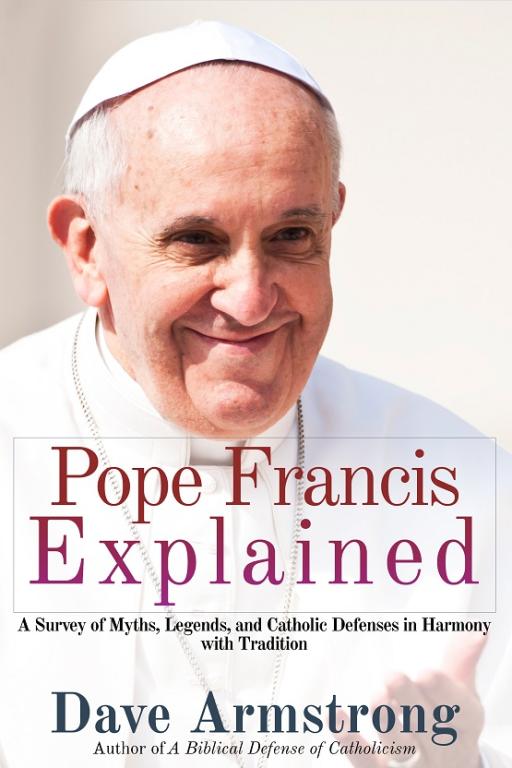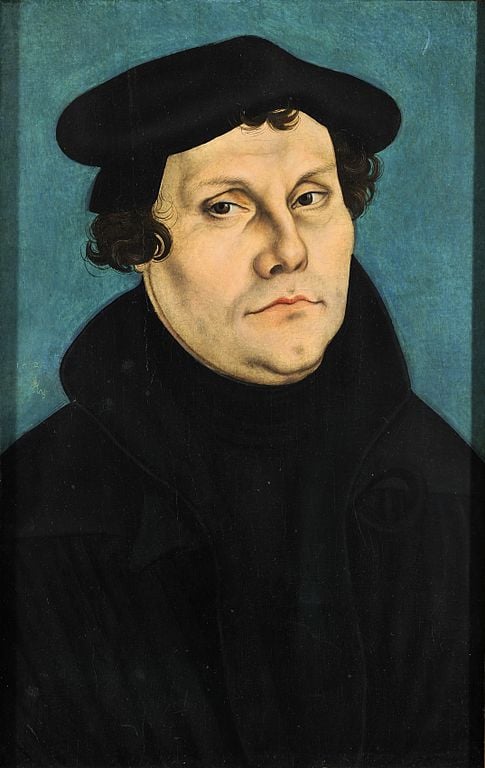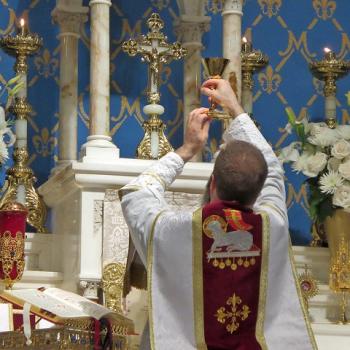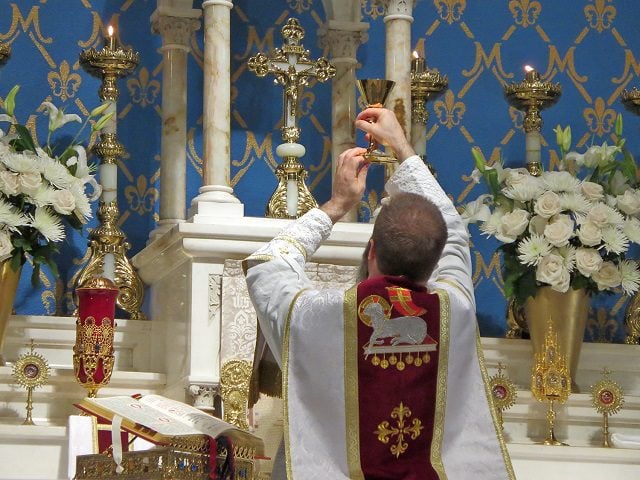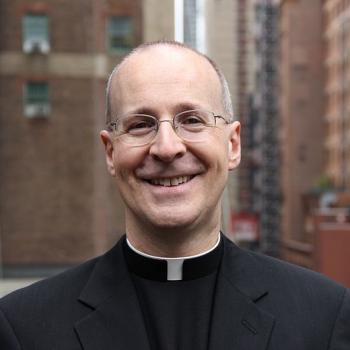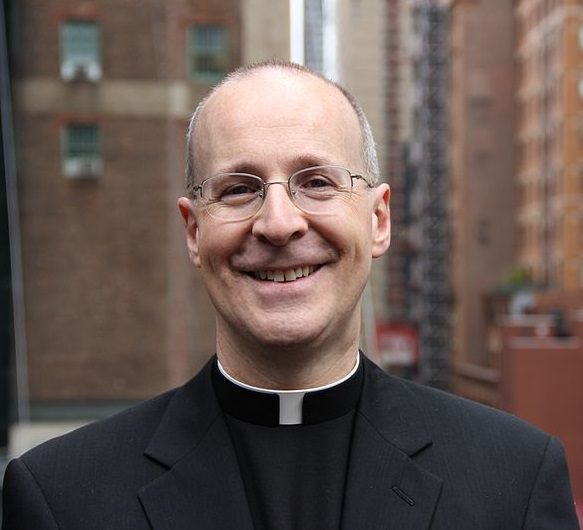
This is a follow-up to my post, Pope Francis: Indissoluble Marriage & No Divorce (+ Analysis of Ed Feser’s “Doctrinally Problematic” Criticisms) (6-1-21). Dr. Feser’s words will be in blue. He answered (albeit briefly and with little substance) twice in my combox underneath that paper and I replied. All of that, with some additional comments, will be compiled here.
*****
Hello Dr. Feser,
Thanks for taking the time to respond. Let me take this opportunity to say that I appreciate a lot (indeed, most) of what you write. I was particularly impressed by your brilliant analysis of the insufficient reasons for Rod Dreher’s defection from Catholicism. When Catholics disagree it’s always important to remember that we mostly agree with each other.
You have seriously misrepresented my position, from your title and opening remarks onward.
I don’t think so, but we will clarify these matters in dialogue. I hope we can go more than one round, so that we can actually accomplish something constructive. My title was punchy and rhetorical (as indicated by the question mark). I’d be glad to modify anything that is inaccurate [two days later I did decide to change the title of the first reply]. And I hope you will do the same: especially because you are criticizing the head of the Catholic Church, whereas I am merely criticizing a philosopher and amateur theologian.
First of all, I have never said that Pope Francis “favors” divorce or “desires… to change the Catholic teaching” on the matter. I have not attributed any such views or motives to him. What I have said is that some of his statements on the matter are ambiguous, potentially misleading, seemingly in conflict with tradition, etc. That is a very different claim from the one you attribute to me, and it is a claim that can be evaluated independently of questions about the pope’s intentions or motives.
Like many critics of the pope, you want to have it both ways: to make these criticisms, but stop a millimeter short of actually asserting that he “denies the Catholic teaching on divorce.” That’s just covering your butt, from where I sit. You strongly insinuate over and over that he is doing precisely that. You want to play sociologist and act like a supposedly objective observer, sitting on the fence and commenting on what all these other folks (with their innumerable rebukes of the pope) say. In your language, you’re very careful to qualify:
Pope Francis has made many statements that at least seem to contradict traditional Catholic teaching . . .
. . . the pope not only makes theologically ambiguous statements about divorce and remarriage . . .
. . . many people worry – whether correctly or not – that he does not agree with traditional teaching but doesn’t want to say so directly.
Does Pope Francis endorse such a reversal of traditional teaching? . . . some of the pope’s statements on doctrinal matters are ambiguous, . . .
[O]n several issues – marriage and divorce, . . . Pope Francis has repeatedly made statements that appear to contradict traditional Catholic teaching . . .
But you slipped from your usual ultra-nuanced statements in two instances that I documented, when you referred (without qualification) to “Pope Francis’s doctrinally problematic statements concerning divorce and remarriage, . . .” and again: “Amoris, the change to the catechism, and all the other doctrinally problematic statements the pope has made over the last five years. . . . the problematic statements . . .”
This shows us what your actual opinion is, because you took off the sociologist’s hat for a moment, to reveal your true feelings. Thus, from those two statements, we can correctly deduce, I think, that at the very least, your opinion is that his view on marriage and divorce is seriously “problematic.” You can tell me if that means “erroneous” or not, or “contrary to the true tradition and the dogma” or not. It means something other than “perfectly acceptable” and “orthodox”, doesn’t it? I’m asking for clarification.
In the same article, you imply again that this is your true opinion, in the example that you use to illustrate the folly of the ad hominem fallacy:
If Charles Manson gives me an argument purporting to show (for example) that Amoris Laetitia is hard to reconcile with Christ’s teaching on marriage or that immigration laws need to be enforced, and in response to that argument all I do is call him a murderous, sadistic, and lying scumbag, then I have committed an ad hominem fallacy.
Moreover, you go after defenders of the pope and his orthodoxy (a group that includes myself; I have defended him in a book and 190 articles) as if we are “naïve” and special pleaders, who engage in “far-fetched” interpretations of his views that we “cobble together.” Thanks for the chuckles there (but I am truly grateful that you refrained from using the words “ultramontanist” or “papolater” or “neo-Catholic” or “modernist”).
Obviously, then, you must think we are wrong that he is orthodox when we indulge ourselves in those unworthy practices, in order to defend things that you think are false. It follows logically, that your opinion is that he is not orthodox in those matters where we are defending him in a “naïve” fashion. Thus, in-between all your ultra-careful / cover the butt nuances we can actually ascertain to a significant extent what your actual opinions are.
Second, you give your readers the false impression that I have developed some notable critique of my own of the pope’s statements on this matter, and then go on to criticize this critique as superficial. But in fact I have not myself written much about the problems with Amoris, and when I have commented on them at all I have mostly referred approvingly to the criticisms that others (such as Brugger, Grisez and Finnis, Fr. Weinandy, et al.) have developed. So, if you were interested in a serious defense of the pope, you would answer the detailed criticisms that those people have made, rather than just answering my brief references to those criticisms. (What I have had a lot to say about myself, of course, are the pope’s statements on a different topic, viz. capital punishment. But again, on Amoris I have mostly merely approvingly cited the arguments of others. So it is odd that you should write up a long post on what I have said about it.)
I’ve written about a lot of papal critics. Why not you too? Your regular commenter and my friend James Scott seems to have this notion that you are above and beyond all the other papal critics (not extreme and fanatical as most of them are, in his opinion), and so I was merely curious to see what you thought about the pope’s views on marriage and divorce. This in turn offered me an opportunity to look up as much as I could from what the pope has said and written. You wrote several times about it, publicly. All that is fair game for critique, whether you or anyone else thinks these remarks considered together constitute a “notable critique” or not. That’s neither here nor there. If I feel that you are unfairly criticizing the pope, as an apologist and defender of All Things Catholic, I will defend him.
One of the questions I would ask you is: why is it that you weren’t willing to grant the pope the courtesy of fully presenting his opinions: to look up what I found with very little difficulty? You neglected to do, with regard to the leader of the Catholic Church, what every 9th grader writing an essay is taught to do: adequately document what they are writing about, or what every middle school debating team is taught: to understand opposing views better than their opponents do themselves. You may say that you were just mentioning these things in passing, etc. Yeah, I know that, but because 1) it is a very serious charge, and 2) against the pope, it warrants and richly deserves the criticism I am giving it.
I have dealt with several aspects of your views on capital punishment, a few years back. You weren’t much interested in responding.
In my critique of the Introduction of Phil Lawler’s book, Lost Shepherd, I wrote criticisms that I think apply to some degree to you in this instance as well. He was far less subtle than you in his book, and referred to “a Roman pontiff who disregarded so easily what the Church has always taught and believed and practiced on such bedrock issues as the nature of marriage and of the Eucharist . . .” I replied:
If he claims that the pope has now denied the indissolubility of marriage (or worse), then by all means, his burden is to find direct passages where the pope did that, and condemn it (and I would immediately join him in his condemnation).
I will go find such passages now — i.e., do Lawler’s work for him –, since he didn’t have time to trouble himself to treat the pope with even a minimum of routine fairness. . . .
If Lawler wishes to assert that Francis has overthrown — or seeks to overthrow — the constant Catholic teaching on marriage, then certainly he can find passages where the pope undeniably does / seeks to do just that. So why didn’t he do that? I would say that it’s because they don’t exist. And what would Lawler say? That the pope is being deliberately secretive and conniving about his “real” beliefs? In other words, that it’s a grand evil, nefarious “jesuitical” conspiracy? Certainly, if this radical strain of thought is present in Francis, then it can be found, in a way infinitely more persuasive or compelling than the always-weak method of arguing from silence. And if it can’t, it ought not be asserted that the pope believes something that can’t be documented from his voluminous writings and talks.
With searching capabilities online today, finding relevant passages is ridiculously simple.
I then produced four examples that were part of the greater number that I found in replying to you.
Another problem with your post is that it is simply beside the point to cite other statements the pope has made that are more traditional-sounding than the problematic ones, especially when they are far less well known than the problematic ones and when the pope has refused to answer questions about the problematic ones, or to explain exactly how they can be reconciled with the more traditional ones – even though doing so would be extremely easy for him to do and would instantly silence his critics. E.g. if he had just come out and answered the dubia, we would not be having this conversation.
First of all, I agreed that he should have answered the dubia: that it would have been better to answer them than not to. I argued this in the National Catholic Register, 3 1/2 years ago. But that’s not an absolute. I personally think it would be prudentially / practically better for him to do so. We agree on that. But he’s neither obliged nor required to do so. He has decided to take the course of silence in those situations, and as pope he can do whatever he thinks is best. Two articles by Dr. Pedro Gabriel have documented that this is his considered approach:
“Silence according to Pope Francis” (12-5-18)
“Silence: the shield against Suspicious Man” (12-10-18)
I get attacked and lied about all the time as an apologist; so do Presidents. The question is how to respond to that. Sometimes people are silent. Other times, they fight back. Presidents Reagan and Bush II never replied to the avalanche of criticisms they received from liberals. President Trump obviously did (and did it get him anywhere? No). Reagan seemed to succeed, but Bush II certainly did not, and had approval ratings in the low 30s and was a laughingstock in the popular (liberal) culture when he left office. So it’s a mixed bag; and so it would also be with the pope.
I myself am usually in the latter category, of almost always replying / clarifying. But I’m not obliged to do that. I could have chosen the route of silence. The pope’s silence in the face of the flat-out attacks (almost all ludicrous, I have found, in grappling with them) has worked wonderfully in the case of Abp. Vigano, since he has self-destructed and exposed himself as a conspiracist wacko.
What’s the essential difference, anyway, between clarifying actually or supposedly “confusing” utterances, and writing clear affirmations of what it is claimed that he denied, in 50 other utterances? It’s like the principle of exegesis, of consulting clearer, plainer Bible passages that can clarify and explain less clear passages on the same topic.
Do you think what I have collected makes it clear that Pope Francis strongly holds to the indissolubility of marriage and the Catholic traditional view of its lifelong nature, with no divorce? If so, why didn’t you include any of that in your analyses? If not, please explain what is so “unclear” about the statements.
I regularly defend the Bible: passages that our atheist friends say are most unclear. The Bible can’t do that. So commentators and apologists do. The same can be done with a pope. So, for example, there was the big controversy about Pope St. John Paul II kissing the Koran. He never defended himself, to my knowledge. But folks like me defended him.
You say Pope Francis should answer the dubia, and I agree. But it’s not true that he has never answered his critics at all in magisterial documents. He already did Amoris laetitia. People were gossiping and engaging in worthless speculation about his views on divorce even before that. So they waited till it came out. And lo and behold, it affirmed indissolubility of marriage eleven times and “lifelong [marriage] seven times. I believe I documented all of those in my citations. How is that not clear? It’s a papal encyclical. I cited another magisterial document, too. He referred (in agreement) to the “indissolubility of marriage” in his Apostolic Letter Motu Proprio Mitis Iudex Dominus Iesus (8-15-15).
As you know, the Church has long criticized the practice of saying traditional-sounding things in one context, while also saying ambiguous things, or things that seem to contradict tradition, in other contexts. For example, the Arians were criticized for doing this, and Pope St. Pius X famously criticized modernists for doing this. And as you also no doubt know, the Church has often condemned theological claims that are not explicitly heterodox but which are nevertheless ambiguous, or can too easily be given a heterodox reading, or are otherwise potentially misleading.
Let’s cut to the quick: is the pope, in your opinion, equivocating and being deliberately ambiguous: saying one thing over here and another over there? This is what the reactionaries say, of course, about Vatican II. You brought up this aspect, not me, so now I am questioning you about it. By bringing this up at all, you are obviously at least speculating that the pope may be doing this.
After all, you have characterized him as “habitually ambiguous and evasive” (9-5-18) and said that he commits “persistent ambiguity” (5-25-19). You have compared him to Honorius, and here, to Vigilius:
What we have, then, is a pope whom heterodox parties favored and schemed to get elected; who was made pope while his predecessor, who had been under pressure to resign, was still alive; whose legitimacy as pope was questioned by some as a result; and who was known for speaking out of both sides of his mouth and for ambiguous theological positions. Sound familiar? It should, because these features are claimed by many to fit Francis’s pontificate. (11-4-19)
And, predictably, having done those two comparisons, you couldn’t resist alluding to an analogy between Pope Francis and Pope Liberius as well (putting on your [by now familiar] sociologist’s hat again, so no one would think of associating you with the opinion expressed here):
A second parallel: The errors of which Pope Liberius and Pope Honorius were accused stemmed from ambiguous doctrinal formulations intended to accommodate those resistant to orthodoxy and thereby to reintegrate them into the Church. In the case of Liberius, the ambiguous language he temporarily consented to was meant to mollify the Arian heretics, and in the case of Honorius, Monothelitism was meant to mollify those sympathetic to the Monophysite heresy. The trouble is that these ambiguous formulations essentially gave away the store to the heretics. Similarly, Pope Francis is accused of trading in ambiguities in the interests of “accompanying and integrating” Catholics who do not accept the Church’s teaching on divorce and remarriage. And the problem, the critics hold, is that Amoris’s way of accommodating these dissenters makes of that teaching a dead letter, or even implicitly contradicts it. (12-18-16)
And that gets back to what I documented. If you agree that those are completely orthodox statements, then you are now implying that the pope may not actually believe them, if indeed (as you insinuate and seemingly suspect) he is presenting heterodox opinions somewhere else. In other words, he would be equivocating, deceiving, lying through his teeth (precisely as Lawler, Abp. Vigano, The Remnant, and many others have unquestionably asserted). And that in turn would be judging his character and his motivations: precisely the thing you said above was not involved in your analysis.
Or you could decide to accept what I documented at face value, as the pope’s true opinions; in which case you would then interpret the other statements that you regard as “problematic” in light of these orthodox, perfectly acceptable, traditional statements: interpreting the less clear in light of the crystal-clear, just as we do in biblical exegesis.
Before you misrepresent me again,
But I haven’t done so, as I have been showing. You failed to understand the direct implications of your statements and I have helped you to do that. :-) With all due respect, you didn’t think through the issue deeply enough. We all fall into that shortcoming at times.
note that I am not accusing Pope Francis of modernism or any other heresy. Indeed, in some of the articles of mine that you cite, I have explicitly criticized those who have been too quick to accuse him of heresy. A person can be irresponsible or muddleheaded without being a heretic.
I deny that he is muddleheaded, per my arguments and what I cited.
Rather, what I am saying is that in defending the theological claims a person has made (whether Pope Francis or anyone else) it is not good enough merely to point to traditional and orthodox things the person has said, IF the person ALSO says problematic things that he refuses to clarify. Hence your post simply misses the point.
Now you are repeating yourself. No need to answer it twice.
Everyone knows that the pope often says orthodox and traditional-sounding things. That’s not the issue. What people complain about is that he also sometimes says things that seem to conflict with traditional teaching and that he refuses to explain or clarify these things even when politely asked.
I have answered that, too. If he doesn’t clarify things to our liking, then we get off our butts, learn search-engine skills that every sharp 7-year-old kid today possesses, and find other statements where the pope clarifies. Or we can look up articles by others that deal with the subject matter. For example, Dr. Robert Fastiggi shows how the pope already has, in effect, answered the dubia in Amoris Laetitia:
“Responding to the Five Dubia from Amoris Laetitia Itself” (Vatican Insider / La Stampa, 3-9-18)
Finally, I would urge you not to indulge the temptation to lump all of the pope’s critics together as if they were all unreasonable hotheads and deserving of condescension. Certainly some of his critics are like that, but by no means all of them. For example, it is quite ridiculous to dismiss the criticisms of Amoris developed by people like the ones I mentioned (Brugger, Finnis, Grisez, Weinandy, et al.) as if they were no better than the kind of ranting one sees in a rad trad combox. To pretend otherwise guarantees that you will speak only to your choir and not convince anyone looking for serious responses to these people. More importantly, it is a failure of justice and charity, and can only increase tensions between Catholics rather than contribute to resolving them.
Good advice, but since I don’t do this, it doesn’t apply to me. But you, on the other hand, seemed to lump all papal defenders together in one of your citations above. I make at least five major distinctions among papal critics:
1) orthodox Catholic papal nitpickers (e.g., Keating).
2) orthodox Catholic papal bashers (e.g., Lawler).
3) traditionalist Catholic papal nitpickers (e.g., Philip Blosser)
4) reactionary Catholic papal bashers (e.g., The Remnant).
5) wacko, conspiracist, reactionary Catholic papal bashers (e.g., Taylor Marshall, Abp. Vigano).
I would place you in #1 or #3, depending on whether you classify yourself as a “traditionalist” or not.
I hope you will answer my questions and address my concerns, so we can have a good dialogue.
Thanks again for your time and consideration.
Dave,
I have zero interest engaging with someone who pretends to be a mind-reader and insists on telling me (and at prodigious length!) what I am “really” thinking, when I’ve already told you otherwise. So, kindly cut it out with that nonsense or we’re done here. If you want to have a discussion with some fantasy version of me rather than with the real me, I’ll leave you to it and get on with something more useful.
I formulated my remarks the way I did for a reason, and it isn’t the reason you suppose it to be. A statement can be ambiguous, misleading, seemingly heterodox, or otherwise problematic regardless of the intentions of the person who makes it. Nor can I read Pope Francis’s mind any more than you can read mine. Furthermore, there are explanations for the pope’s problematic remarks other than those that would involve attributing heretical intent to him, such as muddleheadedness. And then there is the fact that the word “heretic” has canonical and theological implications that entail strict conditions for applying it to a person that I do not believe are met in this case, and it is extremely reckless for people to apply it in the absence of those conditions.
For these reasons, I deliberately avoid getting into questions about the pope’s intentions. It’s not because I am somehow trying to hide my true opinions while sending out dog whistles, or whatever silly thing it is you are obsessed with accusing me of. It’s because it would be irresponsible to do so, and also entirely unnecessary. Again, a statement can be problematic and worthy of criticism regardless of the intentions of the person who makes it. Hence I have focused on the pope’s statements themselves.
If I were to treat your remarks the way you treat mine, I would accuse you of the sleazy rhetorical tactic of engaging in the “poisoning the well” fallacy, which involves trying to distract attention from the content and merits of a person’s claims or arguments by attributing suspect motives to him. But to be charitable, I will refrain from that accusation, given that an alternative explanation is available – namely, that you are yourself very muddleheaded, and also enough of a hothead that you are too quick to deploy a line of criticism before thinking about whether it’s really fair. Certainly past experience makes this explanation very plausible. Anyway, now that I’ve had to correct the record twice, I hope you will cut it out with the mind-reading nonsense. If not, I have to say that the less charitable explanation will look more plausible.
Then again, since your closing question rather shamelessly commits the “are you still beating your wife?” fallacy, perhaps I’m being too charitable. Honestly, Dave, do you really believe that “So what category of nitpicker, basher, reactionary, or wacko do you fall under, Ed?” is a serious way to pursue a dialogue with someone?
This example is classic sophistry, and Dr. Feser can’t possibly not know it. He took an exchange completely out of context in the cynical attempt to make me look ridiculous and petty, and obsessed with minutiae. The original back-and-forth on this category stuff was initiated by him, not myself. He stated:
I would urge you not to indulge the temptation to lump all of the pope’s critics together as if they were all unreasonable hotheads and deserving of condescension. Certainly some of his critics are like that, but by no means all of them. For example, it is quite ridiculous to dismiss the criticisms of Amoris . . . as if they were no better than the kind of ranting one sees in a rad trad combox.
So I replied by noting that “I make at least five major distinctions among papal critics” and listed all five, with an actual example of a person in each one. This shows, of course, that I am not “lumping” all papal critics together without distinction: exactly what he urged me not to do. Then I said I placed him in the “nitpicker” category as opposed to basher or conspiratorial wacko. Thus, I directly answered his criticism, and one would think it would have pleased him that I agreed that there are many important distinctions to be made.
But no, he uses that as a pretext for more caricaturing mockery and actually reverses the very nature of what I said, implying that I initiated it by saying, in effect, “So what category of nitpicker, basher, reactionary, or wacko do you fall under, Ed?” I never asked him that. This is a distortion of what happened. I merely classified him in the mildest category of papal critic. This sort of nonsense is sophistry: most unworthy of a renowned Catholic philosopher like Dr. Feser. And he commits it against a fellow orthodox Catholic and warrior against all sorts of non-Catholic errors, just as he is.
As to why I bothered to respond to this post of yours, the reason is that, while I don’t mind if people criticize my views, I do admit to getting ticked off when they egregiously misrepresent what I say. Criticize me for what I actually think – not for what I don’t think, or for what you’d like to imagine I think. And it badly misrepresents my views to say that I have claimed that “Pope Francis favors divorce” etc. It is unjust of you to have made such a suggestion, and to have accused me of duplicity. I responded merely to correct the record.
Nice projection there. I made no personal remarks, and did not attack your motivations. I wrote, for example:
You failed to understand the direct implications of your statements and I have helped you to do that. :-) With all due respect, you didn’t think through the issue deeply enough. [very deliberate placement of the smiley icon, to show that I was being playfully provocative and not judgmental; obviously to no avail]
But you have certainly attacked the pope, and now myself. It’s a shame that a good discussion was not to be had, but that’s how it usually goes when it has to do with Pope Francis.
I complimented you at the start, and I meant it (“Let me take this opportunity to say that I appreciate a lot (indeed, most) of what you write. I was particularly impressed by your brilliant analysis of the insufficient reasons for Rod Dreher’s defection from Catholicism.”). Not the slightest compliment, however, came from you in my direction.
As always, I’m more than happy to let readers read my arguments and yours, and now your hostile potshots, and make up their own minds. You could have followed and responded to my reasoning, if you didn’t take everything personally, and this could have been a very good dialogue. But you chose to end it and attack. It’s equal parts sad and silly.
But I wish you the best and all God’s blessings. You may be angry at me because I vigorously disagreed with your positions (not you as a person), but it doesn’t follow that you don’t do a lot of great writing and defenses of the faith. You certainly do and I am glad for it. And I will end on that positive note.
***
Closing Observations: I did not misrepresent Dr. Feser at all. I copiously documented what he has stated about Pope Francis (that I thought objectionable) and then critiqued it.
My socratic hard questions were asked in the spirit of “please seriously consider the implications of the things you are stating, that perhaps you are unaware of. They seem to me (and by all means correct me if I’m wrong) to lead inexorably to certain conclusions.”
I can see how Dr. Feser may not have perceived that this was my approach and opinion; that I had not made it clear enough (always a possibility in any discussion). If so, now I have. This is the beauty of dialogue. It allows opportunities to clarify, explain, defend, learn, be challenged and “stretched” and to increase understanding on both sides. But it takes two. Only one party wanted to dialogue in this short-lived exchange.
How Dr. Feser reasons with regard to Pope Francis (and also, secondarily to myself) is how I approached (and continue to approach) him. Let me rephrase his own statements above to illustrate how this analogy works (and it is a very close analogy indeed):
A statement can be ambiguous, misleading, or otherwise problematic regardless of the intentions of the person who makes it. Nor can I read Ed Feser’s mind any more than he can read mine. Furthermore, there are explanations for Ed Feser’s problematic remarks other than those that would involve attributing dishonest or malicious intent to him, such as muddleheadedness.
Again, a statement can be problematic and worthy of criticism regardless of the intentions of the person who makes it. Hence I have focused on Ed Feser’s statements themselves.
An alternative explanation is available: namely, that Ed himself — when it comes to Pope Francis and these issues, — which are not his area of academic expertise, as a philosopher — is very muddleheaded, and also enough of a hothead that he is too quick to deploy a line of criticism before thinking about whether it’s really fair. Now that I’ve had to disabuse him of his accusations twice, I hope he will cut it out with the mind-reading nonsense.
He hasn’t sufficiently thought through what he has been writing about the pope; that’s how I would put it. I simply made a vigorous argument and tried to hold him accountable for his own words. I say his statements are problematic and ambiguous (yes; endless irony, seeing what he and many others accuse the pope of), and I systematically laid out my reasons for why I thought so, and (like the socratic that I am) asked — virtually begged — for clarification.
He utterly refused to clarify and explain and defend what he has said about Pope Francis, with insults, complete with ad hominem attacks on my character and competence. And this in turn, of course, leads me to believe all the more that his views are internally inconsistent and unable to be defended and explained in a satisfactory way: because he refused to do so. He didn’t have the courage of his convictions.
If they could be defended, then I’m quite sure that Dr. Feser (a confident guy if there ever was one) would make that defense for one and all to see. Then I would thank him and this would all have a constructive ending, as I had hoped. Or I would continue to respectfully disagree, and hopefully the dialogue would have continued until some resolution had been achieved.
The fact that he didn’t make such a defense (didn’t even begin to) leads one to plausibly believe that he was unable to do so, because of the internal problems that I raised, that are, in my opinion, insuperable. He thought it better to “punt” rather than straightforwardly grapple with a respectful criticism, from a person well-familiar with the controversies that have swirled around Pope Francis: having defended him 190 times over eight years.
I’m not an academic like he is, but that’s beside the point. On this issue, we are both lay Catholics and non-theologians, and I am a professional apologist who is not unknown. So it was a fairly level “playing field” for discussion. If only it could have taken place . . .
***
Ed Feser out up a mocking, ridiculing “response” on his blog: “Dave’s armstronging again” (6-3-21). I will cite it in its entirety and comment where it seems required to clear up rather “novel” insinuations:
*
Longtime readers might recall Dave Armstrong, a Catholic apologist who, to put it gently, has a tendency to stretch the truth in bizarre ways. His odd behavior has even inspired a definition:
armstrong, verb. Boldly but casually to insinuate a falsehood in the hope that others will go along with it. “Dave tried to armstrong me into a debate. Can you believe that guy?”
What he bases this accusation of me supposedly “stretch[ing] the truth in bizarre ways” on goes back to a silly, insubstantial incident on his blog, that can be seen by following the link. I explained myself there. Any fair-minded person can understand what happened; I had made a harmless mistake. It was much ado about nothing, but Feser, unabashed and unfazed, kept up with the ridicule, and as we see, he now dredges it up after 3 1/2 years, because we have a disagreement. I think that’s very odd and strange, myself.
Well, Dave “Stretch” Armstrong is at it again. Apropos of nothing, he posted an article at his blog the other day suggesting that I have claimed that “Pope Francis favors divorce.”
I actually didn’t. The whole point was seeking clarification from Feser about various statements he made that were (shall we say?) highly critical or suspicious of Pope Francis with regard to divorce and marriage. He never did clarify. Instead, he made it his goal to make out that I am some sort of weirdo who misrepresented his views. You would think that his assertion that I supposedly claimed he believes that “Pope Francis favors divorce” is a direct quote from me. Well, yes, in a way, but mostly no. It was a rhetorical question in the title of my first blog post on the topic: “Pope Francis Favors Divorce? (Ed Feser vs. the Facts)”.
Granted, it’s very pointed and provocative (Jesus and Paul were that, too, last time I checked), but it is not the equivalent of claiming that “Ed Feser says that Pope Francis favors divorce.” Nevertheless, upon reflection I agree that the title is too pointed and can easily be misunderstood as meaning what Feser took it to mean. I take the blame for that, apologize, and will change it [the new title is the innocuous “Pope Francis and Divorce: Two Opinions”].
That said, in my two blog posts I repeatedly called for him to clarify his statements, just as he calls for Pope Francis to clarify. He objects when Pope Francis doesn’t (and to an extent I agree), but he behaves in the same way himself. Go figure. If one is calling for clarification about x, that’s obviously not the same as (falsely) asserting what another believes about x.
That’s a pretty serious charge, but of course I have said no such thing.
Yeah I know. But he has said many objectionable things about Pope Francis, such as making direct analogies of his pontificate to those of some of (arguably) the worst popes ever: Honorius, Vigilius, and Liberius. That’s not nothing. And it’s something that can be honestly disputed.
*
Like other people, I have said that Amoris Laetitia is problematic insofar as its ambiguities seem to permit divorced Catholics living in adulterous relationships to take Holy Communion under certain circumstances, which would conflict with traditional Catholic teaching. And like others (including Armstrong himself!), I have criticized the pope for not answering the dubia, and thereby making it clear that that is not what Amoris is meant to teach. But that is a far cry from accusing the pope of actually favoring divorce.
*
There was still plenty to clarify and explain, and my replies were far more nuanced that Feser seems to think. He tries to paint me out as some sort of goofball, extremist, fanatical in nature; an odd duck who does weird things. I’m not, and anyone who knows me (or even just through my writing) knows that.
*
I posted a comment at Dave’s blog correcting the record. You might think he would do the decent thing and simply retract his rashly made accusation. That would have been quick and easy, and it would have been the end of it.
I clarified what I meant, with a new conclusion to my second reply. But Feser has no interest in normal, amiable, dialogue. He has put me in the “ignore” box and that’s that!
But it seems that that is not the Dave Armstrong way. Instead, he posted several logorrheic comments attempting to rationalize his mischaracterization of my views by way of telepathy. That Pope Francis favors divorce is – mind-reader Dave claims to have discerned – what I “really” think even if I have not actually said that, and indeed have denied it.
That’s not how my argument works at all. Anyone who actually reads it will see that. But it’s not a simpleton’s argument.
Dave also complains, by the way, that in replying to him, I didn’t pay him any compliments on his work in apologetics.
This is an example (and not an isolated one) of how Feser takes something out of context to paint me in an unfavorable, “weird” light. It sounds like I am full of myself, right? In context, it is perfectly normal. Here is the context:
I complimented you at the start, and I meant it (“Let me take this opportunity to say that I appreciate a lot (indeed, most) of what you write. I was particularly impressed by your brilliant analysis of the insufficient reasons for Rod Dreher’s defection from Catholicism.”). Not the slightest compliment, however, came from you in my direction.
I was attempting to explain that this was my spirit: one of complimenting the other person, even during a strong disagreement. Writers do that all the time. I think it’s obvious what I meant. I was saying (or seeking to get across the idea) that “I showed my good will towards you by strongly complimenting your work. I’m not against you, I’m not trying to lie about you. I’m trying to get clarifications. You didn’t even do that much for me. Yet you want to make out that I have the attitude problem.” That was the meaning and motivation. It was an attempt to build bridges. But it takes two to cooperate.
Today Dave has doubled down by posting a second long article reiterating his false allegations.
Which Ed has roundly ignored, just like the first one; now descending to wholesale mockery and childishness.
He has also deleted the comments of another reader who had respectfully disagreed with his original post.
That was an example of trolling. He was trying to dominate the entire combox before Feser even responded. I felt that this was unethical because it virtually sabotaged the discussion between myself and Ed Feser and did not help to achieve any mutual understanding. Every blogmaster dislikes trolling. That’s not unique to me at all.
And he has, as of this writing, disabled comments on both posts, apparently so that neither I nor anyone else can challenge him further.
They’re open again, since that was a strictly temporary situation, as explained. I normally have all my comboxes open. But I do enforce my rules (simple “Golden Rule” civility and staying on topic). Someone has written a critical comment since I opened them up again. I expect a whole slew of Feser fans to now descend, and I’ll say the same to all who ignore my actual arguments: “Ed Feser needs to defend his own dubious statements and have the courage of his convictions. That’s not your job, but his.” If I’m asked to clarify my views, I’ll be happy to do so, as I have already done. That’s another matter.
An argument can be made for simply ignoring this sad spectacle.
How Dr. Feser has acted is an utter disgrace and contemptible, and I’m not even talking about the pope and divorce stuff, but how he has acted towards me and has utterly refused to clarify when asked to do so (just as he calls for the pope to do). It’s all the more embarrassing for a well-known philosopher (who has done so much good in his writing) to treat a fellow Catholic in such a manner.
The trouble is that, as I know too well from bitter experience, false claims tend to take on a life of their own. That “Feser accused the pope of favoring divorce” is now bound to become something many people “know” even though it isn’t so. If some of them instead come to know what kind of a person Dave Armstrong is, that is Dave’s fault, not mine.
I must be some terrible “kind of [a] person” huh? A real scumbag; to be avoided at all costs . . . More evidence of Feser’s disgracefully uncharitable behavior during this “incident.” . . . We all make mistakes and commit errors. And we all need to take the right action when we do. Feser, thus, far, utterly refuses to do so. I am trying to do the right thing by changing the title of my first reply, with an apology: precisely so as to minimize any misunderstandings: the very opposite of what he is now implying that I wish to accomplish. I’ve clarified. I’ve called for normal discussion to reach an understanding. Takes two . . .
***
See the follow-up paper: Did I Say Ed Feser Called Pope Francis a Heretic? (+ Further Exchanges Back-and-Forth with Ed Feser) (6-4-21)
***
Photo credit: geralt (9-10-20) [Pixabay / Pixabay License]
***
Summary: I pressed Ed Feser to clarify what I felt were ambiguous, inconsistent remarks about Pope Francis’ views on divorce. He refused to answer and instead made it all about my character and state of mind.
***





